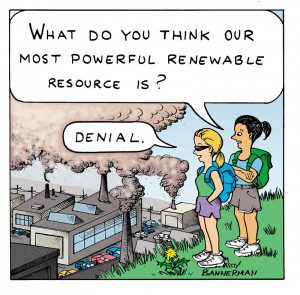is that it plays no favorites…
A recent Daily Beast article by Michael Schulson offers some words that will no doubt be unwelcome in my circles, where anti-evolutionists are, and appropriately, mocked, but homeopathy is big business.
Whole Foods: America’s Temple of Pseudoscience begins with a provocative assertion, “Americans get riled up about creationists and climate change deniers, but lap up the quasi-religious snake oil at Whole Foods. It’s all pseudoscience…”
For the rest of that story, click here.
The problem for us in general is we like science when it confirms our prejudices. We get antsy when it challenges them.
I would suggest lets embrace a little more critical thinking.
It can’t hurt. And it might do some real good.
Carl Sagan wrote a book called the Demon-Haunted World. In it he provided a “Guide to Baloney Detection.” If we want to take critical thinking seriously, if we really want science to be part of our lives, the guide is not a bad place to start. There are various versions posted around the web, here’s a shorter one.
1. Independent confirmation of facts: In science, observations need to be both repeatable, and repeated.
2. Substantive debate by knowledgeable proponents of all points of view: No good comes when an authority silences substantive debate on an issue.
3. There are no true authority figures: Scientific discourse takes place on a level playing field in which ideas are judged by their merits Summed up in this bathroom graffito: “Ideas by merit, not by source.”
4. Use more than one hypothesis: There are often many possible patterns or explanations for patterns. They should all be examined, and the quickest way to get to the answer is usually to examine them simultaneously and not to assume that they are mutually exclusive.
5. Don’t get too attached to your hypotheses: The whole point of testing a hypothesis is to try to falsify it. If we don’t try in earnest, then we really haven’t done much. Alas, the world, including the scientific world, contains true-believers who could never, under any circumstance, be convinced that they are wrong.
6. Quantify: Remember, subjective observations are useless to science. Sometimes, subjectivity can creep into even detailed observations. The true proof of objectivity is often the ability to count or measure.
7. A chain is as strong as its weakest link: When your argument requires a chain of logical steps, each step must be valid or the whole thing is hogwash.
8. Parsimony (AKA Occam’s Razor): When there are more than one possible solutions, the simplest one will usually be correct.
9. And the really big one, Falsifiability: In science you have to have a definite answer to the question, “If I were wrong, how would I know it?” If you don’t, you aren’t doing science. That means it must be possible, in principle, to know if your hypothesis is wrong. If you have no way of knowing if you are wrong, there’s really not much to test or discuss scientifically.
If this catches the heart, a good next step might be to memorize a few logical fallacies.
You’re welcome.













